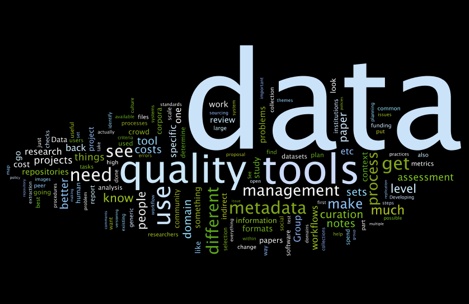Data quality tools help you find and clean up dirty data in your company quickly and efficiently. However, these tools are also computationally intensive and can disrupt existing processes. In this article, you'll learn about a few of the most common examples of data quality tools and how they can help your organization. Also, you'll learn how to choose the right tool for your needs.
Data quality tools can speed up the process of finding and cleaning up your company's dirty data
There are a variety of tools that can be used to clean up dirty data, including MS Excel and Python. These tools can also be used to find invalid values in data. If you have multiple systems with data, these tools can help you quickly identify invalid values and update them.
Data quality tools also help you identify structural errors, such as inconsistent capitalization and mislabeled classes. These errors can make data difficult to use, and should be corrected. Another way to spot mistakes is by using bar plots, which show data categories on one axis and their corresponding values.
Data quality tools are software programs designed to maintain the integrity of data that is stored in an organization's system. These programs are flexible and can be integrated with different applications. For example, Oracle Enterprise Data Quality software provides a solution that integrates data governance, master data management, and CRM. In addition, Uniserv offers a flexible data quality tool that is easy to use and includes training.
They can disrupt existing processes
While many business leaders entertain the idea of implementing new technology to improve processes, fewer implement it. However, digitizing business processes can have a major impact on a business's productivity and results. By using new data quality tools, a company can uncover multiple challenges, increase team productivity, and achieve consistent business results.
Inaccurate data costs organizations 15 to 25 percent of their total revenue. In 2017, inaccurate data cost the global banking industry an estimated $400 billion. Data quality tools improve data quality by identifying errors and improving data governance. They typically include a variety of functions, such as data profiling, standardization, cleansing, and matching similar data. They also help businesses monitor data quality to ensure the data is as accurate as possible.
They can be computationally complex
Data quality tools are software tools designed to ensure data is accurate, complete, and error-free. These tools use algorithms to detect errors and anomalies in data. They have become increasingly sophisticated over time and are now able to perform a wide range of tasks. They can validate mailing addresses and contact information, consolidate data, and perform data analytics.
The IBM InfoSphere QualityStage tool is a high-end data quality application that can be used on-premise or in the cloud. It focuses on data management and cleansing and uses machine learning algorithms to identify problems in data. It also supports deep data profiling and analysis to help identify inconsistencies and omissions.
They can be expensive
Data quality tools are used to improve the quality of data. They analyze data from various sources and determine whether there are errors or missing values. These tools also perform data cleansing and data matching. The data cleaning process involves removing erroneous values and replacing them with correct ones. A data quality tool can help you achieve high quality data for various business applications.
Data quality tools can help you ensure the accuracy of the data in your organization. It is a good idea to choose an intuitive and collaborative tool. A data quality tool should have an easy-to-use interface and allow for collaboration. Having a single source of truth across an entire organization will help ensure that all data is accurate and reliable.
They should be easy to integrate
When choosing a data quality tool, be sure it is easy to integrate with your existing systems. This is crucial for companies that want to scale up as their needs and business grow. The tool should also be scalable, which means that it can be added to as many users as necessary. When evaluating different options, take into account the ease of integration and the vendor's support and training. Then, make your choice.
There are several data quality tools available today, but some are easier to integrate than others. IBM's InfoSphere Information Server for Data Quality, for example, has a large market share and its own ecosystem of software applications. The software is also much cheaper than most competitors, making it an affordable option for businesses. In addition to this, IBM also offers a wide range of support and upgrades.


No comments yet